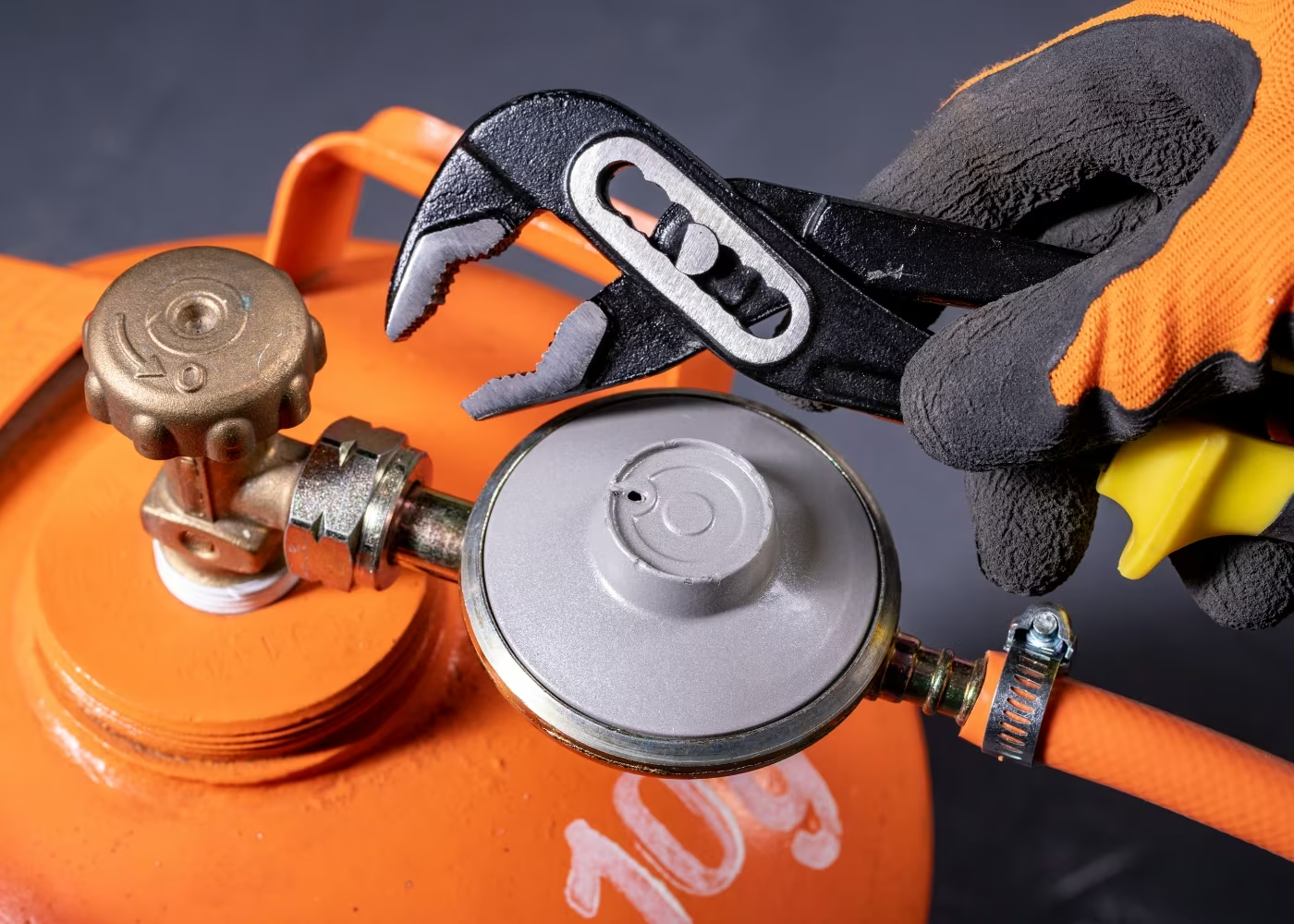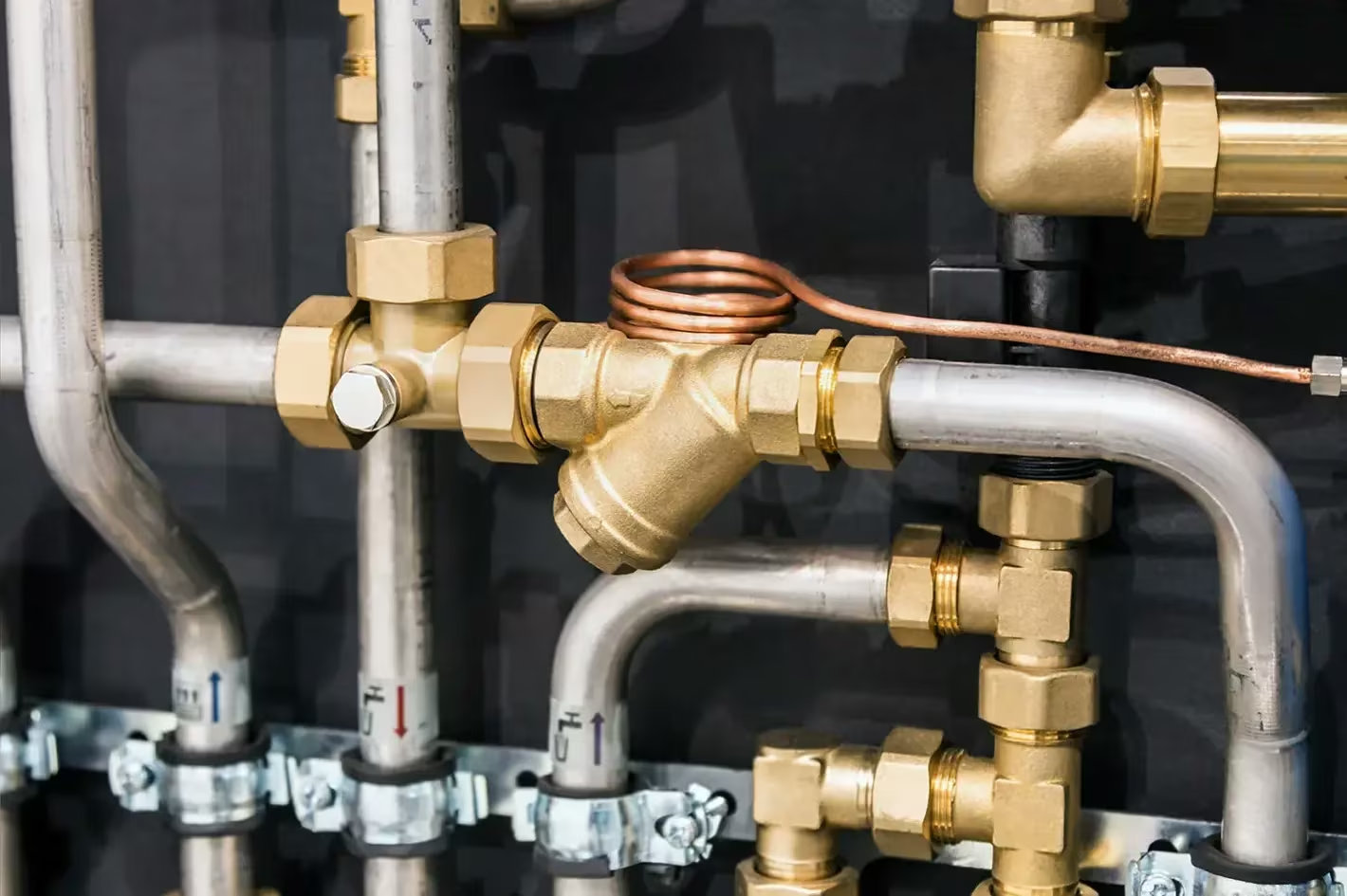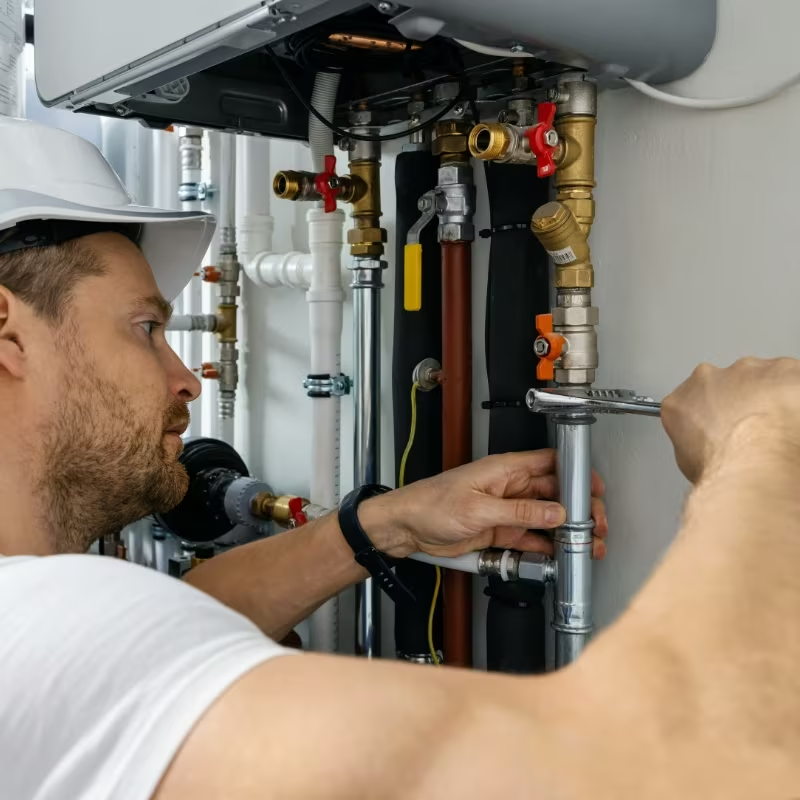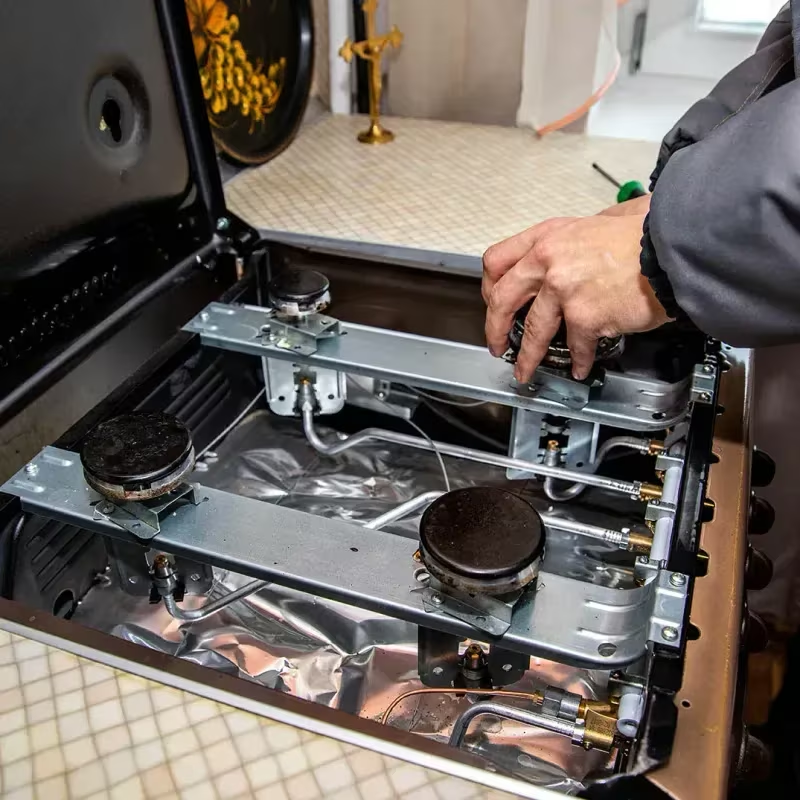Gas fitter Canberra

Blueline Plumbing & Gas are Canberra's trusted gas fitting experts. With years of experience and qualified gas fitters, we provide comprehensive gas fitting services such as installation, detection, and repair. Our top priorities are safety and efficiency, so rely on us for gas appliance service and carbon monoxide testing. Whether you require gas installations, leak detection or gas-to-natural gas BBQ conversions, our licensed professionals guarantee high-quality work and safety for your home or business.
Request a Plumbing Quote in [Suburb]

The local gas fitting experts
Blueline Plumbing & Gas takes pride in being the leading experts in gas fitting services in Canberra. We're proud to say that Blueline Plumbing & Gas is the best at installing gas appliances in Canberra. We offer a full range of gas fitting services, such as installation, detection, and repairs. Our team of qualified gas fitters has years of experience. Gas fitting is an important part of any business or home. Making sure safety and efficiency are met requires accuracy and skill. Because of this, it's important to hire a professional gas fitter like us. We can handle all of your gas fitting needs, from hot water systems to gas leaks and everything in between. As part of our gas fitting services, we can install gas appliances, find and fix gas leaks and put in gas lines. Our licensed and experienced gas fitters know how to find gas leaks and fix them quickly, which keeps you safe and gives you peace of mind. We understand how inconvenient and stressful it can be when gas fittings fail. As a result, we are committed to providing all of our customers with prompt and reliable service. We are proud of the high quality of our work and the excellent service that we provide to our customers. We ensure that each job meets the highest standards.
The trusted local gas fitting team
Blueline Plumbing & Gas is Canberra's gas fitting experts. We provide gas fitting installation, detection, and repairs with years of experience and qualified gas fitters. Installing gas lines is needed for both homes and businesses. To ensure safety and efficiency, you need to be precise and skilled. Because of this, you should hire a gas fitter like us. We know how to fix problems with gas leaks, hot water systems and other things. As part of our gas fitting services, we can install appliances, find and fix leaks and put in gas lines. Our licensed and skilled gas fitters can quickly find and fix gas leaks, keeping you safe and giving you peace of mind. We understand how annoying and stressful gas fitting problems can be. As a result, you can rely on us to provide you with prompt and dependable service. We are proud of our high-quality work and excellent customer service, and we hold ourselves to the highest standards on every project.

Blueline Plumbing & Gas are your local specialist for all domestic plumbing and gas fitting needs.
Get in touch for a quote or speak with a qualified plumbing specialist. You can count on us to find the best solution if you need plumbing or repair help right away.

We offer an incredible range of services
Discover the exceptional gas fitting services we provide at Blueline Plumbing & Gas in Canberra. Our expert team specialises in plumbing and gas services, ensuring that all your gas fitting requirements are expertly managed by qualified professionals. We provide comprehensive services, from installation and detection to repairs, ensuring your home or business remains safe and efficient. Our team of licensed and experienced gas fitters delivers swift service and exceptional craftsmanship, ensuring your peace of mind. For all your gas appliance installation, gas leak detection and repairs or gas line installations, we are committed to providing outstanding plumbing services in Canberra.
Gas installation
Blueline Plumbing & Gas is your trusted authority for all gas fitting requirements in Canberra, Australia. Backed by years of expertise and a dedicated team of licensed gas fitters, we take pride in providing gas installations that are both safe and compliant with industry standards. For gas installation, securing the services of a licensed gas fitter is essential. They possess not only the training and qualifications necessary for managing gas systems effectively but also a profound comprehension of the safety protocols that are essential. Your gas installation will be executed with precision and safety, providing you with the reassurance you deserve. Our skilled gas fitters handle a range of essential tasks, from installing and maintaining to repairing gas appliances and systems with precision and expertise. Whether you need gas heaters or hot water systems, our team is equipped with the expertise to manage all your gas fitting needs. We guarantee exceptional craftsmanship and timely service, ensuring your gas installation meets the highest standards of excellence. Gas systems can pose serious risks, potentially resulting in hazardous leaks or even catastrophic explosions. When you choose Blueline Plumbing & Gas, you can have confidence knowing that our licensed gas fitters will expertly identify and resolve any gas leaks, safeguarding the safety of your home or business.
Professional gas cooktop installation, repair and servicing
Blueline Plumbing & Gas is your go-to expert for gas hob installation, repair and servicing in Canberra, Australia. Experience peace of mind with our expert installation, meticulous maintenance, and peak performance for your gas hob. Our certified gas fitters adhere to all regulations and safety standards to ensure a secure installation every time. Our team conducts a thorough site inspection, evaluating gas connections and ventilation to identify the optimal location. Our team expertly installs the hob, seamlessly connects it to the gas supply and conducts thorough testing for any gas leaks. Our services extend to repairing faulty burners and valves, ensuring your equipment runs smoothly. Our skilled technicians expertly diagnose issues and deliver prompt, effective repairs. Consistent maintenance is crucial for optimal performance and extended lifespan. Our maintenance checks are designed to proactively prevent issues while guaranteeing safety and efficiency. Encountering issues? We’re here to troubleshoot and deliver effective solutions. Reach out to Blueline Plumbing & Gas for all your gas fitting requirements in Canberra.
Gas leak detection
Gas leaks can be dangerous and fatal if not addressed promptly. That's why we prioritise the safety of your home or business at Blueline Plumbing & Gas. Gas leaks can happen in various areas of the gas system. Early detection of a gas leak is essential to avoid potential dangers. A gas leak often reveals itself through the unmistakable smell of gas. Should you detect a potent petrol odour, act swiftly and decisively. At Blueline Plumbing & Gas, our skilled team is ready to swiftly identify and resolve any gas leaks with precision. Our state-of-the-art equipment and innovative techniques ensure the utmost safety for your property. Pay attention to the signs of a gas leak. Reach out to us for dependable gas leak detection services that safeguard your home or business.
Carbon monoxide testing
At Blueline Plumbing & Gas, we prioritise gas safety and understand the potential dangers of gas leaks. That's why we offer comprehensive gas fitting services in Canberra. Carbon monoxide testing is a crucial element of gas safety. Carbon monoxide is a colourless, odourless gas that can be generated by gas appliances, particularly Type B gas appliances found in industrial and commercial settings. To prevent the deadly risks of carbon monoxide poisoning, regular testing is crucial.For Type B gas appliances, a technical submission must be sent to Access Canberra for approval to make sure safety standards are met.Gas leaks are very dangerous because they can cause fires, explosions, and serious health problems.It is very important to find and fix gas leaks right away. Our licensed gas fitters have the expertise to identify and repair gas leaks efficiently, giving you peace of mind.

Gas installation Canberra
Canberra gas fitting
Canberra gas fitter
Gas installation Canberra
Carbon monoxide testing Canberra
Gas cooktop servicing Canberra
Gas cooktop installation Canberra
Gas cooktop repair Canberra
Gas fitting Canberra
Gas fitters Canberra
Gas leak detection Canberra
Gas leak Canberra
Gas plumber Canberra
Gas plumbing Canberra
Gas plumbers Canberra
Gas appliance repair Canberra
Gas appliance repairs Canberra
Gas fittings Canberra
Gas fitting
Gas fittings
Gas fitter
Gas fitters
Gas installation
Gas repairs

We can change your BBQ from LPG to natural gas
Gas fitters
At Blueline Plumbing & Gas, we specialise in all plumbing and gas-related services in Canberra, Australia. One of our many services includes the conversion of BBQs from LPG to natural gas. If you've recently made the switch to natural gas or simply want to change your BBQ's fuel source, we can assist you. The process of converting a BBQ from LPG to natural gas involves a few essential steps. Initially, our skilled technicians will evaluate your current BBQ setup and identify the essential adjustments or modifications needed for the conversion. This could involve modifying the burner orifices, fine-tuning the gas pressure, or fitting a new gas hose and connector.Our team will meticulously implement the necessary adjustments and modifications to guarantee that your BBQ functions efficiently and safely with natural gas. Our commitment to excellence is reflected in the use of top-tier equipment and materials, ensuring a flawless conversion every time. Our team possesses the know-how to handle this conversion for any BBQ type, be it a freestanding unit, built-in grill, or portable BBQ.
Contact us
Our team is ready to assist you!
19 Battye St, Bruce ACT 2617, Australia


-p-500.webp)



